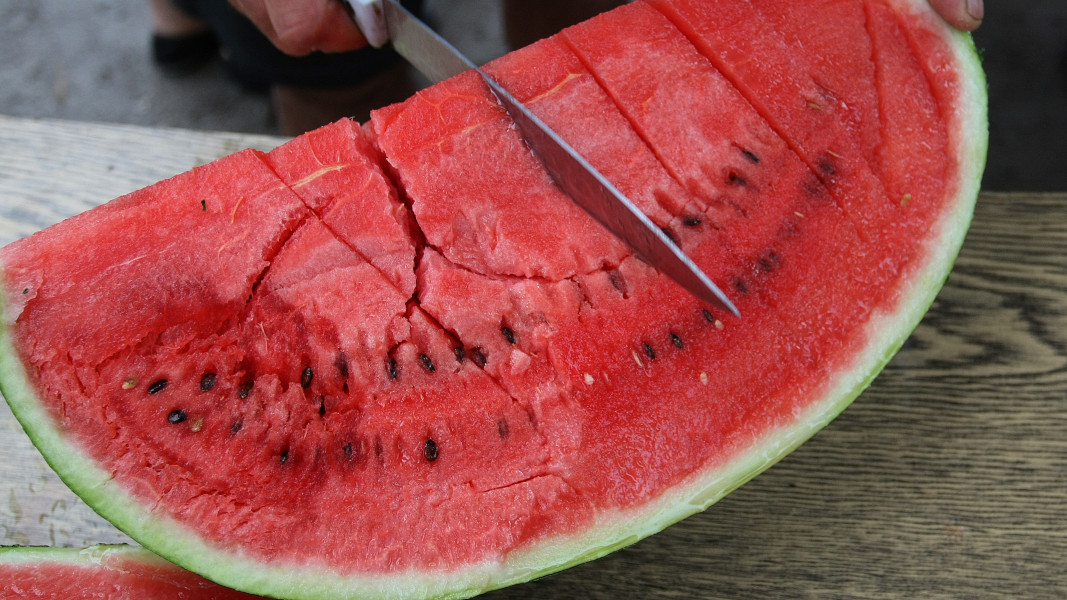Tons of watermelons are left in the field for lack of a market. Cheap Greek produce is permanently replacing domestic production, Bulgarian watermelon growers say. The state has no control over imports.
Costs have jumped by 30-40% at twice the farm gate price. This is the assessment of Yanko Yanev, one of the biggest producers in Lyubimets - the most famous watermelon growing region in Bulgaria. Once, sweet melons and watermelons were the trademark of the fertile lands of this southern Bulgarian town and the main livelihood for the locals. Today the situation is radically different. Melons are hardly grown at all and the watermelon business is getting tougher.
"This year, because I have a market, I'm at break-even. But the other growers have nowhere to sell and their watermelons are still in the field, unharvested," says Yanev. - There is no control over imports."

Yanev has 110 hectares of land planted with the Sorrento and Romanza varieties. He has been in the business for 10 years, but in his words, in 2021 the farm-gate price for watermelons was 15 euro cents per kilo, and this year it is 5-8 euro cents. "This year's harvest was weaker - the weather was not right," he said, calculating that the average cost per acre is 500 euro, which means that the purchase price per kilo should be at least 13 euro cents, and now the production is being sold at a loss.
Despite the difficult situation in the industry, Yanev manages to sell about 500 - 600 tons of his production on the domestic market, mainly on the stock exchanges in Plovdiv and Pazardzhik, with an average yield of 5 tons per acre. Harvesting this fruit is extremely labour intensive.
"It is very difficult to find watermelon pickers to work under the scorching sun but I manage for a wage of 50 leva daily (25 euro), says the farmer and highlights another serious failure of the state. He is one of the few registered farmers in Lyubimets. But there are many farmers who are in the grey economy and "do not pay taxes or social security". EU subsidies for fruit and vegetable production in the country are extremely low. Neighbouring Greece receives much more EU funds for the development of the sector, Yanev stresses.
"On the market in Sofia there are no watermelons from Lyubimets, no native production, everything is from Greece. It has been like that for years. Bulgarian watermelons are better, I guarantee you. And where are the retail chains, where is the state? It takes hard work to make a living with watermelons," says Yanko Yanev and shares concerns that watermelon production in the fertile region of Lyubimets will soon follow the fate of tomato growing:

"Soon there will be no watermelons in Lyubimets municipality. Just like tomatoes. Once every household had three greenhouses, and now there are no more tomatoes, the same will happen with watermelons - there will simply be no watermelons," says Yanev. He is considering halving the area of crops next year.
Author Tania Balabanova, BNR-Stara Zagora
English version: Elizabeth Radkova
Photo: BGNES“The main priorities businesses have – membership of the Eurozone and accession to the Schengen area by land – have receded to the background. They are the motors which can boost the economy, but the fact there is no regular government is an obstacle..
Bulgargaz has reported record interest in its tender for the supply of LNG to the Alexandroupolis terminal for January and February 2025. All nineteen bidders met the criteria set by the company and have been approved to participate in the next..
The Russian state oil company Lukoil has plans to sell its Bulgarian refinery Neftochim based in Burgas on the Black Sea Coast. It is the largest in the Balkans, writes the Financial Times . The deal is expected to be announced by the end of..

+359 2 9336 661
